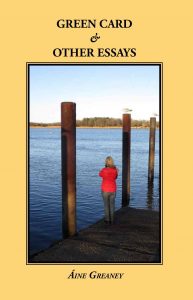Collecting and Editing Our Short Works for a Book-Length Manuscript
 Collecting and Editing Our Short Works for a Book-Length Manuscript
Collecting and Editing Our Short Works for a Book-Length Manuscript
When I decided to pitch and publish a book-length collection of personal essays, I thought that it would be an extended word processing project. I would go to my digital essay folder, download all my previously published essays—including the one published here in When Women Waken. Then, I would flow these documents into one, long-form piece to create the complete manuscript.
No creative project is as fast or easy as it first appears. Far from being a quick word-processing stint, it took me over six months to re-craft and re-edit my essays–and that doesn’t include the time spent researching and marketing to publishers. Neither does it include the process of inserting my publisher’s suggested edits.
There’s a distinct art and process to curating and collecting our individual poems, short stories or essays into a full-length book.
I’m happy to share what I learned from my project:
Find a unifying theme: Instead of short, stand-alone pieces published by separate editors in separate print or online publications, my essays would now exist together. In a way, they would be like children in a family portrait or a family snapshot album. Hopefully, the book would sit in a shop or a library or in someone’s e-reader. But where? In what sub-category? Some of my essays are strong on memoir. Others are mostly opinion. Most are combinations of introspection, memoir and opinion. In one long work day, I re-read my printed-up essays until the recurring theme was obvious. Even when I was writing on social justice or gun control or immigrant rights or contemporary Ireland, I was writing from (and about) the borderlands of belonging. I was writing about being an immigrant in 21st-century America.
Select a title: Book titles are like the punchline in a joke. If you have to explain it, you’ve lost your audience. Now that I had my theme (immigration), I needed to find a working title. I decided to make one of my earlier essays, “Green Card,” which had been cited in Best American Essays, the book’s title essay. A green card, by the way, is the colloquial or unofficial name for the government documentation that makes you a legal permanent residency and gives you working papers in the United States. Five or 10 years ago, “Green Card” might have been a risky choice—a title that baffled or bored readers. But nowadays, the lexicon of immigration is also part of the news headlines and, by extension, the wider American consciousness. So Green Card & Other Essays seemed like a good working book title.
Kill the kids: Now it was time to select the outtakes—the pieces that didn’t belong. I must admit. This made me really nervous. Not only did I feel like a wicked stepmother, I also knew that the lower the page count, the harder it would be to pitch and sell the book. However, as an editor, I hate padding. As readers, haven’t we all skipped over paragraphs or chapters that are extraneous to the narrative or story? Padding isn’t just annoying; it diminishes and weakens the power of the “good” work, the parts that actually belong. So, some of my essays landed in the recycle box.
Find the sequence: While I wasn’t working on a book-length memoir or novel, I still needed to create a chronology or “plot.” Give or take, my book’s journey or story started as a 24-year-old immigrant (and an extra clueless one at that) landing alone in a huge new country. It ended as a newly-minted and ambivalent U.S. citizen registered to vote in, and write about, life in that country. In between these two plot points, I needed to create the book’s narrative arc. Then, I had to figure out exactly where all the intervening essays belonged along that arc.
Edit: Some of my individual essays had been published in the U.S. Others had been published in my native Ireland. A British-based journal had accepted one, while a Canadian journal had published another. Wherever they were, all of my editors were superstars. But now, I had to make the new manuscript fit for purpose and its new audience and context. Remember those discarded or recycled essays? From some of them, I rescued a phrase or paragraph to insert it into one of the keeper pieces. In others, I overrode the original journal editor’s changes to reinstate some of my own, previously discarded text. In still others, I mushed two pieces together for a longer, stronger essay. Luckily, I prefer to re-write than write, so I loved editing my essays into a longer, coherent manuscript.
The process of researching and finding a small, independent publisher merits a separate blog post or article. However, I will say this: Before you craft your marketing pitch, know your own literary goals. What do you want to happen as a result of this book? Also, be realistic about your book’s actual place or currency in the marketplace. I mean, when was the last time you saw a small collection of essays or poetry or literary short fiction sitting in an airport bookstore or next to the greeting cards in a chain pharmacy? Find a publisher whose scope and mission coheres with your own and with whom you can build a respectful, collegial relationship.
In my publisher, I’ve found both of these. And now, this spring, my book is published and I’m excited to meet my readers as I schedule book events and discussion panels for “Green Card & Other Essays.”
Áine Greaney is an Irish-born author who never published anything until she emigrated from Ireland to America, alone, at age 24.
Since then (1986), she has published five books, including her latest release, “Green Card & Other Essays.”
Her shorter works have been published and broadcast in the U.S., Ireland, the U.K. and Canada in publications such as Creative Nonfiction, NPR/WBUR, The Boston Globe Magazine, Numero Cinq, Salon, The Drum, New Hibernia Review, Litro Magazine, Books Ireland and other outlets.
Her awards and shortlists include a citation in Best American Essays and a Pushcart Prize nomination. Her second novel, Dance Lessons, was one of 20 chosen by the National Women’s Book Association for National Reading Group Month. Among her other writing awards and shortlists are the Hennessy Award for New Irish Writing, The Fish Anthology, the Rubery International Book Award, the Frank O’Connor Award, the Irish News Short Story Award and Indie Lit 2011.
In addition to writing, she has presented or co-presented at national and regional conferences and participated in discussion panels.
 In Green Card and Other Essays, Áine Greaney invites her readers to follow her three-decades’ long journey from Irish citizen and resident to new immigrant and green card holder to dual citizenship that now includes naturalized U.S. citizenship. These first-person essays offer an intimate perspective on the challenges—fear, displacement, assimilation and dueling identities—faced by many immigrants from all countries.
In Green Card and Other Essays, Áine Greaney invites her readers to follow her three-decades’ long journey from Irish citizen and resident to new immigrant and green card holder to dual citizenship that now includes naturalized U.S. citizenship. These first-person essays offer an intimate perspective on the challenges—fear, displacement, assimilation and dueling identities—faced by many immigrants from all countries.
They explore what inspires us to commit to a new country—and what holds us back. As a collection, Green Card exemplifies the power of storytelling to build bridges of understanding and a deeper joy in our shared humanity.
Category: Contemporary Women Writers, How To and Tips

























